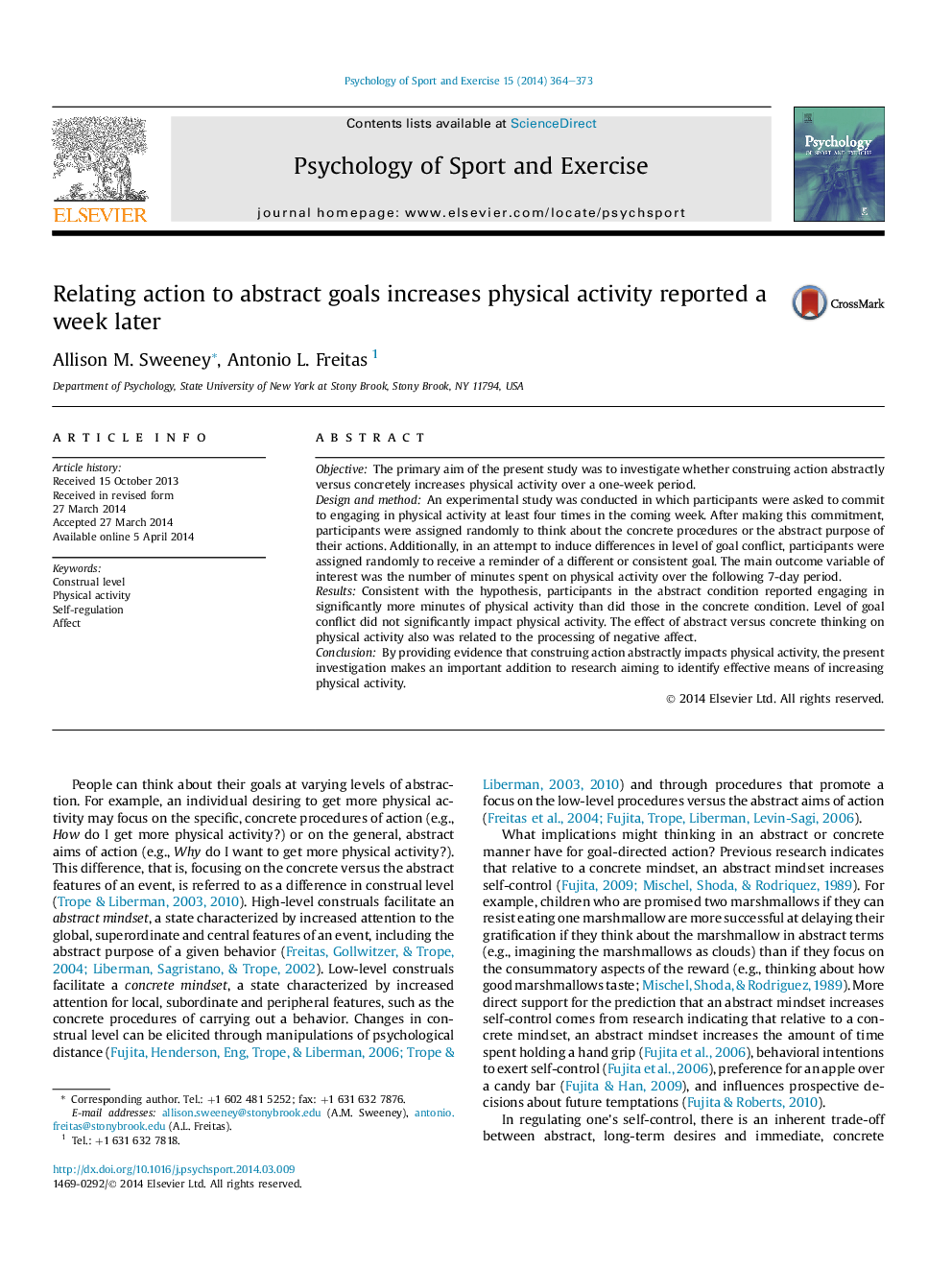| Article ID | Journal | Published Year | Pages | File Type |
|---|---|---|---|---|
| 894394 | Psychology of Sport and Exercise | 2014 | 10 Pages |
•We test the effect of abstract versus concrete mindsets on physical activity.•Level of goal conflict and affect were tested as potential moderators.•An abstract mindset increased physical activity more so than a concrete mindset.•Level of goal conflict did not impact physical activity.•Negative affect helps to explain how abstract thinking impacts physical activity.
ObjectiveThe primary aim of the present study was to investigate whether construing action abstractly versus concretely increases physical activity over a one-week period.Design and methodAn experimental study was conducted in which participants were asked to commit to engaging in physical activity at least four times in the coming week. After making this commitment, participants were assigned randomly to think about the concrete procedures or the abstract purpose of their actions. Additionally, in an attempt to induce differences in level of goal conflict, participants were assigned randomly to receive a reminder of a different or consistent goal. The main outcome variable of interest was the number of minutes spent on physical activity over the following 7-day period.ResultsConsistent with the hypothesis, participants in the abstract condition reported engaging in significantly more minutes of physical activity than did those in the concrete condition. Level of goal conflict did not significantly impact physical activity. The effect of abstract versus concrete thinking on physical activity also was related to the processing of negative affect.ConclusionBy providing evidence that construing action abstractly impacts physical activity, the present investigation makes an important addition to research aiming to identify effective means of increasing physical activity.
